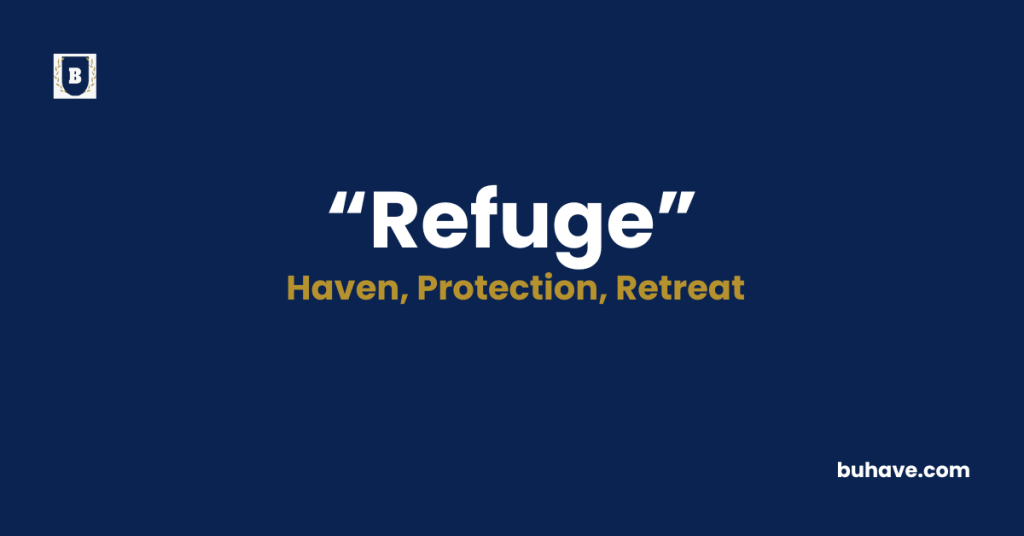The word ‘Refuge’ (noun) refers to a place of safety, shelter, or protection from danger or trouble. In this guide, you’ll learn the full definition, synonyms, antonyms, etymology, and real-life examples of how to use ‘Refuge’ correctly in sentences.
Refuge Explained in Depth
A complete and detailed guide to the word ‘Refuge’ including meaning, definition, examples, etymology, synonyms, and antonyms.
Meanings of Refuge
Refuge means a safe place or sanctuary where you can find protection or shelter from harm, danger, or difficult situations. It can be a physical place, like a house or a fortress, or a metaphorical one, like a comforting relationship or support network.
Definition
Refuge a safe place where you find shelter, protection, or comfort, especially when you’re facing danger, stress, or uncertainty. When you seek refuge, you’re looking for a space where you can feel secure and at peace, away from anything that threatens you. It’s like finding a cozy, protected spot where you can rest and recharge.
For example, during a storm, people might seek refuge in a sturdy building. Or in times of emotional distress, one might find refuge in the company of friends and family.
Etymology
The word “refuge” comes from the Latin root refugium, meaning “a place of escape” or “shelter,” derived from refugere (“to flee back or run away”).
- Latin: refugium = “shelter, place to flee back to”
- Latin: re- = “back” + fugere = “to flee”
Example Sentences
- During the war, many families sought refuge in underground shelters.
- The cozy cabin in the woods became our refuge from the chaos of city life.
- She found refuge in her art, which provided comfort during hard times.
Refuge Synonyms
- Shelter
- Sanctuary
- Haven
- Safe haven
- Retreat
- Asylum
- Hideaway
- Harbor
- Protection
- Stronghold
Refuge Antonyms
- Exposure
- Danger
- Peril
- Risk
- Vulnerability
- Threat
- Hazard
- Menace
- Jeopardy
- Insecurity
FAQs about Refuge
Here are some frequently asked questions (FAQs) about the word “Refuge”
1. What does “refuge” actually mean?
It means a place of safety or protection from danger or trouble, either physically or emotionally.
2. Can “refuge” describe an emotional state?
Yes! For example, “He found refuge in his music” means music provided him emotional comfort and relief.
3. Is “refuge” always a physical place?
No, it can be both a physical place or a metaphorical one—any source of comfort, relief, or protection.
4. What is the difference between “refuge” and “shelter”?
“Refuge” often implies protection from danger or emotional hardship, while “shelter” typically refers to physical cover or housing.
5. Can I use “refuge” in everyday conversation?
Absolutely! It’s commonly used to describe safe places, both physically and metaphorically. For example, “The library was my refuge from the noise.”






